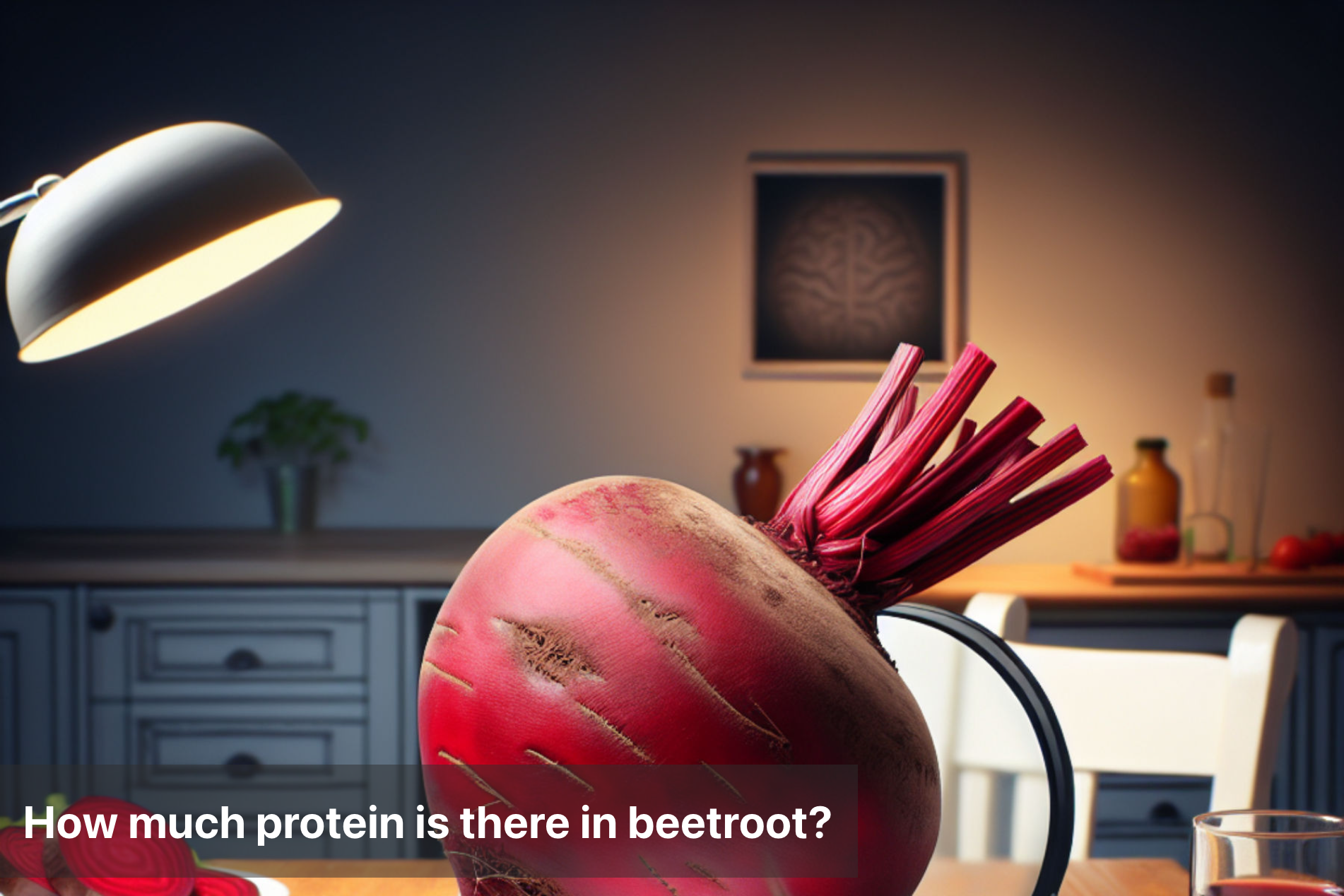
How much protein is there in beetroot?
Beetroot, also known as simply beets, is a vibrant and versatile vegetable that packs a punch in terms of both flavor and nutrition. This root vegetable is characterized by its deep red hue and earthy taste, making it a popular ingredient in salads, smoothies, and even desserts. One of the key nutritional highlights of beetroot is its impressive protein content, which sets it apart from other vegetables.
In addition to being a good source of protein, beetroot is also rich in essential nutrients such as fiber, folate, vitamin C, and potassium. These nutrients play a crucial role in supporting overall health and well-being. Moreover, beetroot is known for its antioxidant properties, which help protect the body from oxidative stress and inflammation.
Including beetroot in your diet can offer a range of health benefits, including improved digestion, enhanced exercise performance, and better blood pressure management. Whether roasted, boiled, juiced, or pickled, beetroot is a delicious and nutritious addition to any meal.

Nutritional Profile of Beetroot
One cup (136 grams) of boiled beetroot contains:
Calories |
43 |
Water |
88% |
Protein |
1.6 grams |
Carbs |
9.6 grams |
Sugar |
6.8 grams |
Fiber |
2.8 grams |
Fat |
0.2 grams |
Ways to incorporate Beetroot in your diet
Method |
Description |
|---|---|
Raw Beetroot Salad |
Grate or thinly slice raw beetroot and toss with a vinaigrette for a crunchy salad. |
Roasted Beetroot |
Roast whole or sliced beetroot with olive oil, salt, and pepper until tender. |
Beetroot Smoothie |
Blend cooked or raw beetroot with fruits like berries, banana, and spinach for a smoothie. |
Beetroot Juice |
Juice fresh beetroot with apples, carrots, and ginger for a vibrant drink. |
Beetroot Hummus |
Add cooked beetroot to traditional hummus for a colorful twist. |
Beetroot Soup |
Blend cooked beetroot with vegetable broth, onions, garlic, and spices for a hearty soup. |
Beetroot Chips |
Thinly slice raw beetroot, toss with olive oil and spices, and bake until crispy. |
Beetroot Dip |
Blend cooked beetroot with Greek yogurt, garlic, lemon juice, and herbs for a creamy dip. |
Beetroot Risotto |
Stir cooked beetroot puree into risotto for a vibrant and flavorful dish. |
Beetroot Pancakes |
Incorporate grated beetroot into pancake batter for a colorful breakfast option. |
Benefits of Protein in Beetroot
When it comes to discussing the benefits of consuming protein from beetroot, it is important to highlight the positive impact it can have on muscle repair and growth. Beetroot, often underestimated as a protein source, carries essential amino acids that aid in the maintenance and development of muscles.
Protein derived from beetroot plays a crucial role in repairing muscle tissues post workout. This nutrient promotes muscle recovery by supporting the regeneration of muscle fibers, ensuring they grow stronger and healthier over time. As an individual who engages in regular physical activities, incorporating protein-rich beetroot into your diet can significantly enhance your muscle repair process.
Moreover, the protein content in beetroot contributes to muscle growth, enabling individuals to achieve their fitness goals effectively. By providing the necessary building blocks for muscle development, beetroot can help individuals increase muscle mass and strength when combined with a consistent workout routine.
Incorporating beetroot as a protein source in your diet can be a valuable addition, especially for individuals aiming to improve their muscle repair and growth processes. By embracing the benefits of protein in beetroot, you can take a step towards a healthier lifestyle and enhanced physical performance.

Protein Content in Beetroot: Exploring its Nutritional Profile
Beetroot, often overlooked as a protein source, offers a surprising array of nutrients and benefits for a balanced diet. While commonly known for its vibrant color and earthy flavor, beetroot packs a punch when it comes to protein content. Incorporating beetroot into your diet can be a game-changer in achieving your daily protein requirements.
With approximately 1.6 grams of protein per 100 grams, beetroot stands out as a significant protein source among vegetables. This makes it a valuable option for vegetarians and vegans looking to up their protein intake.
The benefits of consuming protein from beetroot extend beyond mere nutrition. Protein plays a crucial role in muscle repair and growth, making beetroot a great addition to post-workout meals or snacks. Moreover, the antioxidants and anti-inflammatory properties of beetroot further enhance its status as a superfood.
By including beetroot in your diet, you not only diversify your protein sources but also boost your overall nutrient intake. Whether enjoyed in salads, smoothies, or roasted dishes, beetroot proves to be a versatile and nutritious addition to a well-rounded diet.
FAQs
-
How much protein is there in beetroot?
Beetroot contains about 1.6 grams of protein per cup, making it a relatively low-protein vegetable.
-
Is beetroot a good source of protein?
While beetroot does contain some protein, it is not considered a significant source of protein compared to other plant-based or animal-based sources.
-
Can I increase the protein content of a beetroot dish?
Yes, you can add protein-rich ingredients like quinoa, chickpeas, nuts, seeds, or tofu to a beetroot dish to boost its protein content.
This Blog post is an initiative by Lo! Foods, to provide accurate and Nutritionist / Doctor approved information related to Health. Lo! Foods is India's leading brand for Everyday Functional Foods. Foods designed for specific Health conditions or Needs. Lo! Foods also runs India's largest range of Low Carb Healthy Cloud Kitchens, under the brand names of Lo!, ProteinChef, ATH (All Things Healthy) and DiabeSmart.















Leave a comment
Your email address will not be published.